IFN643 Ransomware Data Recovery

I think there's an issue with my storage device, but I'm not sure
Start a free evaluationWhat is IFN643 Ransomware?
IFN643 is a type of computer virus that encrypts files on an infected computer and demands a ransom be paid to unlock the files. Attackers typically spread this type of malware through email attachments or by downloading infected files from untrustworthy websites. IFN643 Ransomware can cause significant financial damage to individuals and organizations, as well as create a major inconvenience. If you believe they have infected your computer with IFN643 Ransomware, it is important to take immediate action to remove the malware. It's important to note that even if you can decrypt your files, you should still take steps to prevent IFN643 Ransomware from infecting your computer again in the future.
How does IFN643 work?
When this ransomware infects a computer, it will scan for certain types of files and encrypt them using a strong encryption algorithm. Once the files have been encrypted, the IFN643 will display a ransom note that includes instructions on how to pay the ransom and decrypt the files. The ransom amount is typically demanded in Bitcoin or another cryptocurrency, and it is usually required to be paid within a certain period. If you do not pay the ransom within the specified time, the IFN643 may delete the encryption key, making it impossible to decrypt the files.
How much is the IFN643 ransom demand?
The IFN643 ransomware demand typically starts at around $1,000 and increases over time. The attackers may also threaten to release the encrypted files or sensitive information if you do not pay the ransom.We do not recommend paying the IFN643 ransom demand, as there is no guarantee that you will regain access to your files. Additionally, paying the ransom only provides financial support to the attackers and may encourage them to continue their malicious activity.
History
IFN643 was first discovered in 2019. It is a variant of the IFN656 Ransomware, which was first seen in 2018. The IFN656 is a member of the STOP (DJVU) ransomware family, which is one of the most active and prolific ransomware families.
What was the biggest IFN643 Ransomware attack?
The biggest IFN643 Ransomware attack occurred in May 2019, when the malware encrypted more than 200,000 files on a German company's network. The company ended up paying a ransom of $1.3 million to decrypt the files.
What encryption algorithm does IFN643 Ransomware use?
The IFN643 Ransomware uses the AES-256 encryption algorithm to encrypt files. This is a strong encryption algorithm that is used by many organizations to protect sensitive data. IFN643 generates a unique encryption key for each file it encrypts. This key is then used to decrypt the files when the ransom is paid.
What types of files does IFN643 Ransomware encrypt?
IFN643 typically encrypts common file types, such as documents, images, and videos. However, it can also encrypt other types of files, such as databases and backups.
Prevention
There are several steps you can take to prevent IFN643 Ransomware:- Keep your operating system and software up to date with the latest security patches.- Use a reputable antivirus program and keep it up to date.- Do not open email attachments from unknown senders.- Do not download files from untrustworthy websites.
How can I remove IFN643 from my computer?
There are a few different ways you can remove IFN643 Ransomware from your computer:Use an anti-malware program: Anti-malware programs can detect and remove IFN643 from your computer. We recommend using Malwarebytes.Use a decryption tool: If one is available, you can use a decryption tool to decrypt the files encrypted by IFN643 Ransomware.Restore your files from a backup: If you have a backup of your files, you can restore them from the backup after you remove this ransomware from your computer.
Is there a public decryption tool?
At this time, there is no public decryption tool for IFN643 Ransomware. However, there are a few private decryption tools that may be able to decrypt your files. If you have IFN643 Ransomware, you can try contacting a data recovery company that specializes in ransomware decryption.
Contact a data recovery service
SalvageData Recovery is a ransomware decryption service with a great success rate in IFN643 Ransomware removal.We have a team of experienced security professionals who can help you recover your data. Contact us today for a free consultation.
Related services
These are the most commonly requested data recovery services. At our headquarters' cleanroom lab, our certified engineers conduct a thorough review of any type of physical storage device, determining if there is logical or physical damage and carefully restoring all of the lost files.ces.
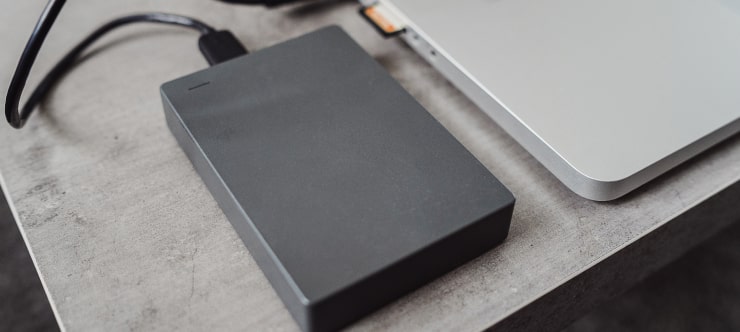
External Drive Data Recovery
We recover data from both external SSD and HDD drives. Rely on certified experts to restore your important files from damaged or corrupted external drives.
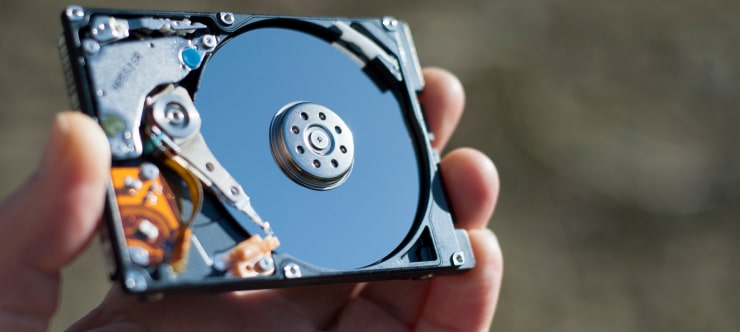
Hard Drive Data Recovery
Recover data from all brands of HDD, PC hard drives, and hybrid disks. Our specialists ensure fast and secure recovery for any data loss scenario.
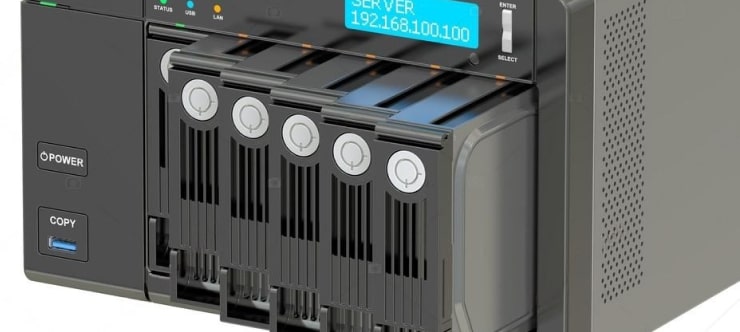
NAS Data Recovery
Recover data from NAS devices, including RAID configurations. Our team handles all types of NAS systems and ensures data recovery with minimal downtime.
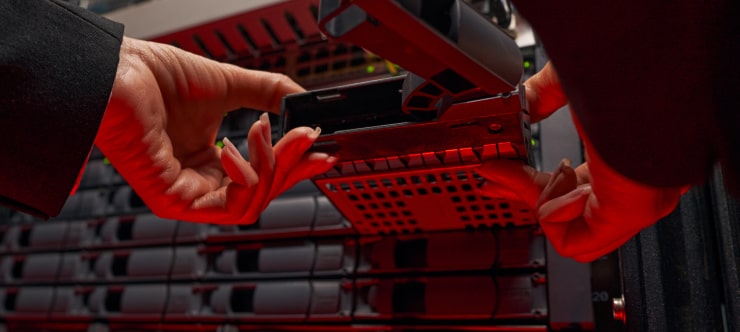
RAID Data Recovery
Our RAID data recovery services cover RAID 0, 1, 5, 10, and other configurations. We offer expert solutions for failed, degraded, or corrupted RAID arrays.
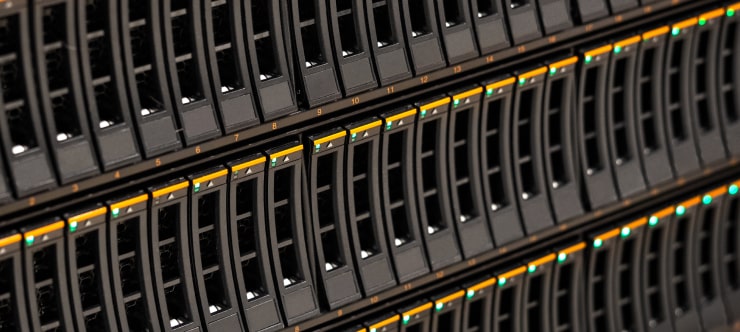
SAN Data Recovery
Our team specializes in handling SAN devices from leading manufacturers like Dell EMC, HP, and IBM, ensuring efficient recovery with minimal disruption to your operations.
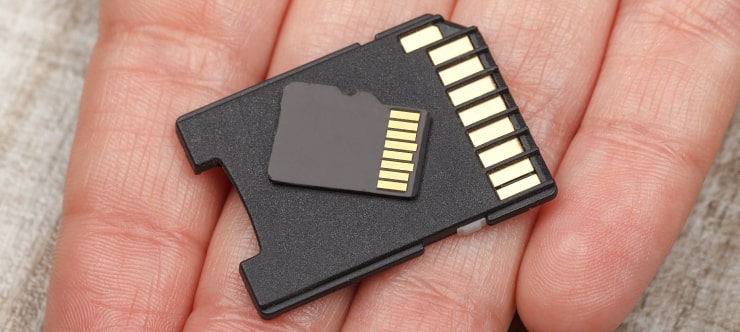
SD Card Data Recovery
Our recovery experts specialize in restoring data from SD and memory cards. We guarantee quick recovery with a no-data, no-charge policy.
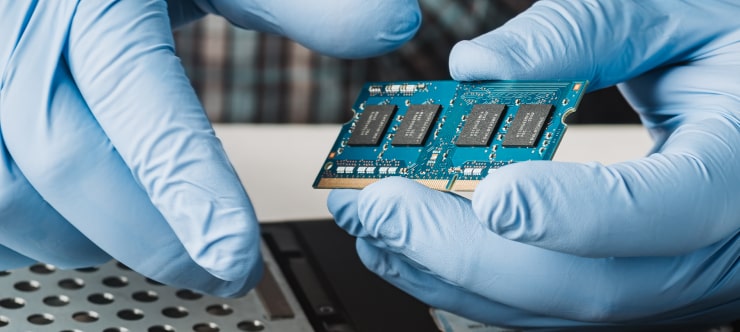
SSD Data Recovery
Our data recovery experts handle all SSD data loss scenarios with advanced tools, ensuring maximum recovery with high-security protocols.

USB Flash Drive Data Recovery
Recover lost data from USB flash drives, regardless of the damage or brand. We offer free in-lab evaluations to assess data recovery needs.
If you’re unsure about which data recovery service to choose, let our team assist you in selecting the appropriate solutions. We understand the anxiety that comes with a sudden drive failure, and we are more prompt in our actions compared to other recovery service providers.



